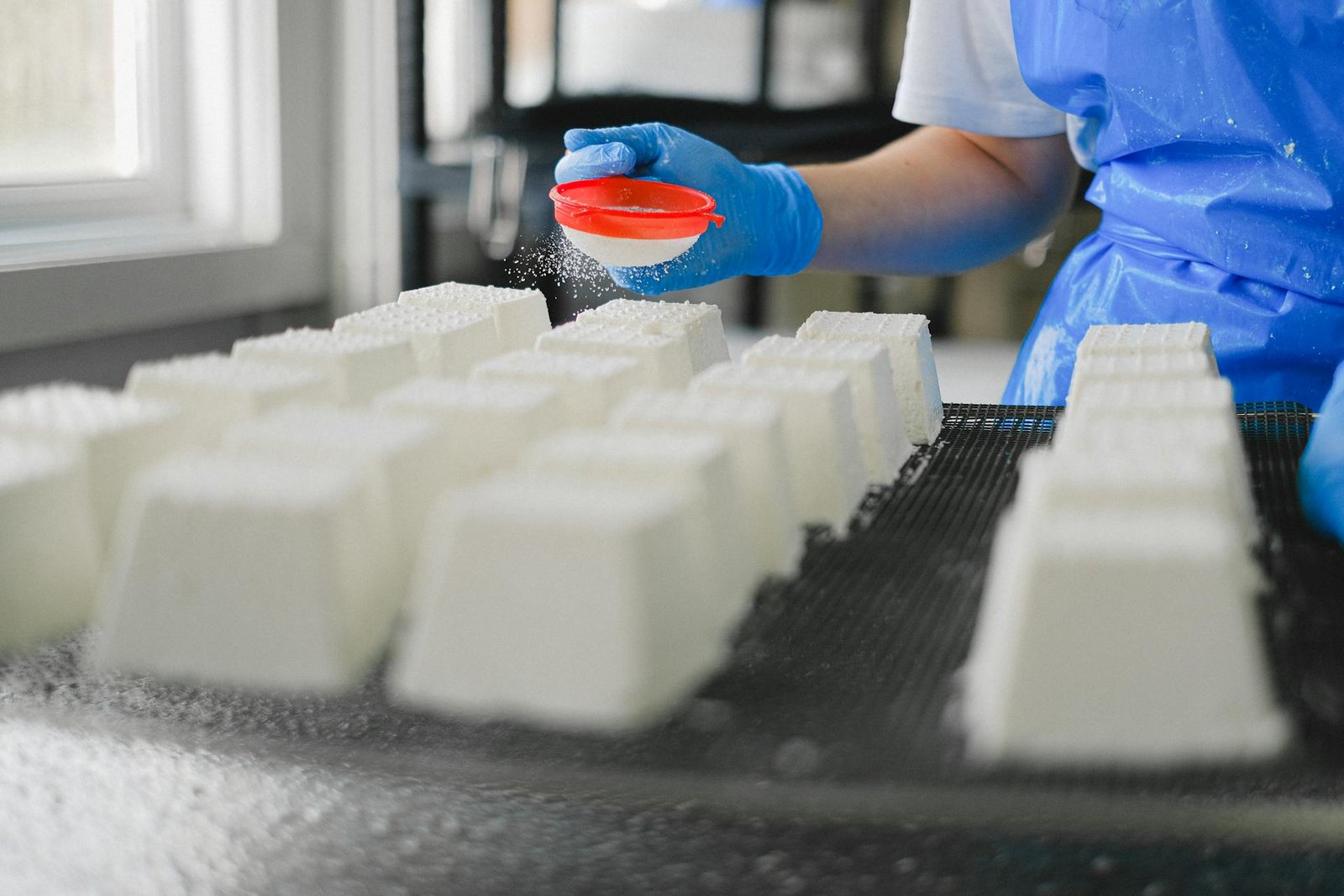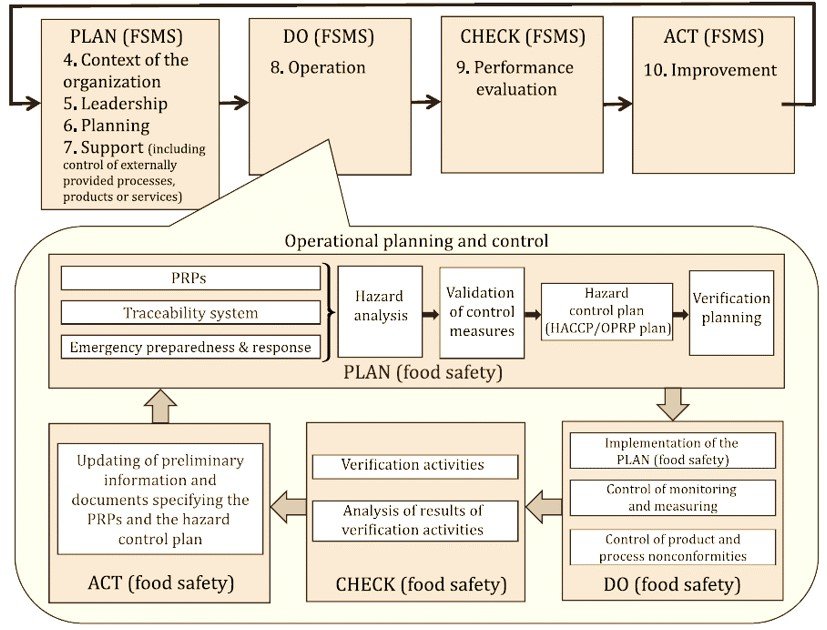ISO 22000:2018
Food Safety Management System – ISO 22000 Certification
An International Standard of Food
Safety System for Food and Associated
Sector

Success through management excellence

Achieving Excellence in Food Safety with ISO-22000 Certification Services by Global Standards
The food industry demands unwavering commitment to safety, quality, and compliance. ISO 22000 certification serves as a gold standard for Food Safety Management Systems (FSMS), ensuring organizations meet global benchmarks. Global Standards, a leading certification service provider, empowers businesses to achieve Food Safety Certification seamlessly while enhancing operational efficiency.
Moreover, Global Standards has a proven track record of delivering 100% successful certification results across diverse sectors. Through tailored training, documentation, and hands-on consultation, they transform food safety systems, ensuring compliance and boosting consumer trust. This white paper highlights our impactful work, showcasing real-world success stories from three major food sector clients.
Why ISO-22000 Certification Matters
First and foremost, ISO 22000 certification strengthens an organization’s ability to identify, prevent, and mitigate food safety risks. Additionally, it aligns with international regulations, opening doors to global markets. Companies that adopt Food Safety Certification not only improve our internal processes but also gain a competitive edge.
Furthermore, Global Standards simplifies the certification journey by providing end-to-end support. From policy development to staff training, our experts ensure seamless implementation. As a result, businesses experience measurable improvements in safety protocols, operational efficiency, and stakeholder confidence.
Secure Food Safety Excellence with ISO 22000 Certification in Pakistan
Build Consumer Trust Through Food Safety
In Pakistan’s growing food industry, consumer confidence is paramount. Achieving ISO 22000 certification in Pakistan provides the definitive framework for ensuring food product safety from farm to fork. This globally recognized standard enables food businesses to systematically identify and control food safety hazards. Moreover, it demonstrates your unwavering commitment to producing safe, quality food products. Therefore, pursuing ISO 22000 certification in Pakistan establishes your organization as a leader in food safety management and consumer protection.
Drive Business Growth Through Certified Safety
The commercial advantages of obtaining ISO 22000 certification in Pakistan deliver significant market benefits. First, it enhances your eligibility for contracts with major retailers, exporters, and government food programs. Then, it reduces operational costs by minimizing food safety incidents and product recalls. Furthermore, a valid ISO 22000 certification in Pakistan strengthens your brand reputation and opens doors to international export markets. Consequently, you transform food safety compliance into a powerful tool for business expansion and competitive advantage.
Partner with Food Safety Experts for Guaranteed Certification
Implementing an effective Food Safety Management System requires specialized expertise. Global Standards serves as your dedicated partner for achieving ISO 22000 certification in Pakistan. Our comprehensive approach includes facility assessment, documentation development, and staff training tailored to your operations. We guide you through HACCP principles and prerequisite programs, ensuring full compliance with international standards. This proven methodology guarantees a seamless certification process and a 100% success rate for your ISO 22000 certification in Pakistan.
Lead Pakistan’s Food Industry Forward
Your commitment to food safety deserves recognition and market reward. Don’t just meet basic requirements—set new benchmarks for excellence in Pakistan’s food sector. Partner with Global Standards today and secure your ISO 22000 certification in Pakistan to build a safer, more reputable, and globally competitive food business that consumers trust and markets value.
Elevate Food Safety Standards with ISO 22000 Certification in the Middle East
Meet the Highest Standards of Food Safety
The Middle East’s food sector demands uncompromising safety and quality across its complex supply chains. Achieving ISO 22000 certification in the Middle East provides the definitive framework for managing food safety risks to international standards. This globally recognized system enables you to systematically address hazards from production to consumption. Moreover, it demonstrates to regulators and consumers your proactive commitment to food safety excellence. Therefore, pursuing ISO 22000 certification in the Middle East establishes your organization as a trusted partner in the region’s food industry.
Strengthen Your Market Position and Compliance
The strategic advantages of obtaining ISO 22000 certification in the Middle East deliver substantial business value. First, it ensures compliance with stringent regional food safety regulations and import requirements. Then, it significantly enhances your competitiveness for contracts with hotels, retailers, and government food programs. Furthermore, a valid ISO 22000 certification in the Middle East builds brand credibility and facilitates market access across GCC countries. Consequently, you convert food safety management into a powerful commercial asset that drives growth and customer confidence.
Achieve Certification with Regional Food Safety Experts
Navigating the region’s specific food safety requirements demands specialized knowledge. Global Standards provides comprehensive partnership for achieving ISO 22000 certification in the Middle East. Our tailored approach includes supply chain assessment, HACCP implementation, and staff training aligned with regional regulations. We manage the entire certification process, from documentation to audit preparation. This expert guidance ensures a smooth implementation and guarantees a 100% success rate for your ISO 22000 certification in the Middle East.
Lead the Future of Food Safety in the Region
Position your organization at the forefront of food safety innovation and trust. Don’t just meet standards—set them. Partner with Global Standards to secure your ISO 22000 certification in the Middle East and build a safer, more reputable, and globally competitive food business that exceeds market expectations and delivers unparalleled consumer confidence.
Success Stories: Transforming Businesses with ISO-22000 Certification
1. AWS & Co. (Pvt) Ltd – 60% Enhancement in Food Safety & Staff Competency
AWS & Co, a prominent player in the food sector, partnered with Global Standards to achieve ISO 22000 certification. Initially, the company faced challenges in standardizing its food safety practices. However, after implementing Global Standards’ structured FSMS framework, they witnessed a 60% improvement in system efficiency and staff competency.
Global Standards developed customized food safety manuals, trained employees, and streamlined documentation. As a result, AWS & Co not only secured certification but also strengthened its market reputation. The client praised Global Standards in our testimonial, highlighting our professionalism and expertise.
2. Alnafay Dates International – 70% Transformation in Just 2–3 Months
Alnafay Dates International sought to enhance its food safety compliance to meet export standards. After engaging Global Standards, the company underwent a 70% operational transformation within 2–3 months.
Global Standards implemented a robust Food Safety Certification process, including hazard analysis, staff training, and process optimization. Consequently, Alnafay Dates achieved full compliance, reduced risks, and expanded its international market presence. Our leadership team commended Global Standards for our swift, results-driven approach.
3. Consumer Foods International (Pvt) Ltd – 70% Improvement in Food Safety Systems
Consumer Foods International aimed to overhaul its food safety management system to meet global benchmarks. By leveraging Global Standards’ ISO 22000 certification services, they achieved a 70% enhancement in our food safety protocols.
Global Standards provided end-to-end support, including training, consultation, and internal audits. The company not only achieved certification but also optimized its supply chain safety measures. Our positive feedback on Google and the Global Standards website reflects our satisfaction with the results.
© Global Standards. All rights reserverd for this documented information shared for reading purpose only.
White Paper - ISO 22000:2018 Food Safety Management System
BENEFITS OF ISO 22000 STANDARD
- Greater Impact on Customer
- Increase Transparency
- Streamlined Production
- Minimization of Significant Food Risks
- Effective Control of internal processes
- Increase staff motivation
- Focus kept on essential challenges
- Reduce the cost of nonconformities
The Industries are relevant to:
- Farmers
- Growers
- Feed producers
- Food manufacturers and processor
- Food ingredient producers
- Food storage, distribution and transport organizations
- Caterers
- Retailers
- Food service operators such as restaurants and fast-food outlets
Why Choose Global Standards for ISO 22000 Certification?
ISO 22000 certification is a game-changer for food safety and business growth. Global Standards stands out as a reliable service provider, delivering 100% certification success with measurable improvements. Our hands-on approach—combining training, documentation, and auditing—ensures seamless compliance.
Whether it’s AWS & Co, Alnafay Dates, or Consumer Foods International, Global Standards has consistently driven 70%+ enhancements in food safety systems. By choosing them, businesses not only achieve Food Safety Certification but also build long-term operational resilience.
For organizations ready to elevate our food safety standards, Global Standards offers the expertise, credibility, and results to make it happen. Visit our website to explore client testimonials and start your certification journey today!
Global Standards’ Approach to ISO-22000 Certification
Global Standards follows a structured, client-centric methodology to guarantee certification success. the process includes:
- Gap Analysis & Planning– Initially, they assess existing systems against ISO 22000 requirements. Consequently, they develop a customized roadmap for compliance.
- Documentation & Manuals– Next, they create comprehensive food safety policies, manuals, and procedures tailored to the organization’s needs.
- Training & Competency Development– Subsequently, they conduct targeted training sessions to enhance staff expertise in food safety protocols.
- Internal Audits & Pre-Certification Checks– Finally, they perform rigorous internal audits to ensure readiness for the official certification audit.
By following this approach, Global Standards ensures a smooth, stress-free certification process with guaranteed results.
White Paper - ISO 22000 Food Safety Management System
NEW METHODOLOGY OF PDCA MODEL
Structure
ISO 22000 now adopts Annex SL’s high-level structure (HLS), which provides a unified framework for all ISO management system standards. This modernized approach offers three key advantages. First, it ensures consistency across different standards. Second, it enables full alignment between various management systems. Third, it harmonizes sub-clauses and terminology across all food safety management standards. As a result, organizations can achieve smooth integration while reducing compliance challenges. Additionally, this standardized structure allows businesses to implement, maintain, and audit multiple management systems—including food safety—more efficiently than before.
PDCA MODULE

Applicable Clauses for Implementation
- Context of Organization
- Leadership
- Planning
- Support
- Operation
- Perfomance Evaluation
- Improvement
Certification Audit Timeline & Process
Step 1: Application & Document Review
First, the organization submits an application to a certified ISO 22000 registrar. Next, the registrar reviews the organization’s existing food safety management system (FSMS) documentation. Then, the auditor checks for compliance with ISO 22000 requirements. If the documents meet the standard, the registrar proceeds to the next stage.
Step 2: Stage 1 Audit (Readiness Review)
During this phase, the auditor evaluates whether the organization has implemented the FSMS effectively. The auditor identifies any gaps or non-conformities and provides feedback. Afterward, the organization addresses any issues before moving to Stage 2.
Step 3: Stage 2 Audit (Certification Audit)
Here, the auditor conducts an on-site assessment to verify that the FSMS operates according to ISO 22000. The auditor examines processes, interviews staff, and reviews records. Following the audit, the auditor reports findings, including any major or minor non-conformities.
Step 4: Corrective Actions & Closure
If the auditor finds non-conformities, the organization must take corrective actions. Once completed, the organization submits evidence to the auditor. Subsequently, the auditor reviews the corrections and confirms compliance.
Step 5: Certification Decision
After successful completion of all stages, the certification body reviews the audit results. Finally, if the organization meets all requirements, the certification body issues the ISO 22000 certificate.
Step 6: Surveillance Audits & Recertification
To maintain certification, the organization undergoes annual surveillance audits. After three years, the organization must complete a recertification audit to renew its ISO 22000 certification.
By following this structured process, organizations achieve and maintain ISO 22000 certification efficiently.
Client Testimonials & Public Recognition
Global Standards takes pride in its 100% success rate and client satisfaction. Many organizations have shared glowing reviews on Google, feedback forms, and the company’s testimonial section. Clients consistently highlight:
- Expert guidance in achieving ISO 22000 certification
- Customized training programs that enhance staff competency
- Efficient documentation & compliance support
These testimonials reinforce Global Standards’ reputation as a trusted partner in Food Safety Certification.

For Call or WhatsApp +92-306-2708496
© Global Standards. All rights reserverd for this documented information shared for reading purpose only.
